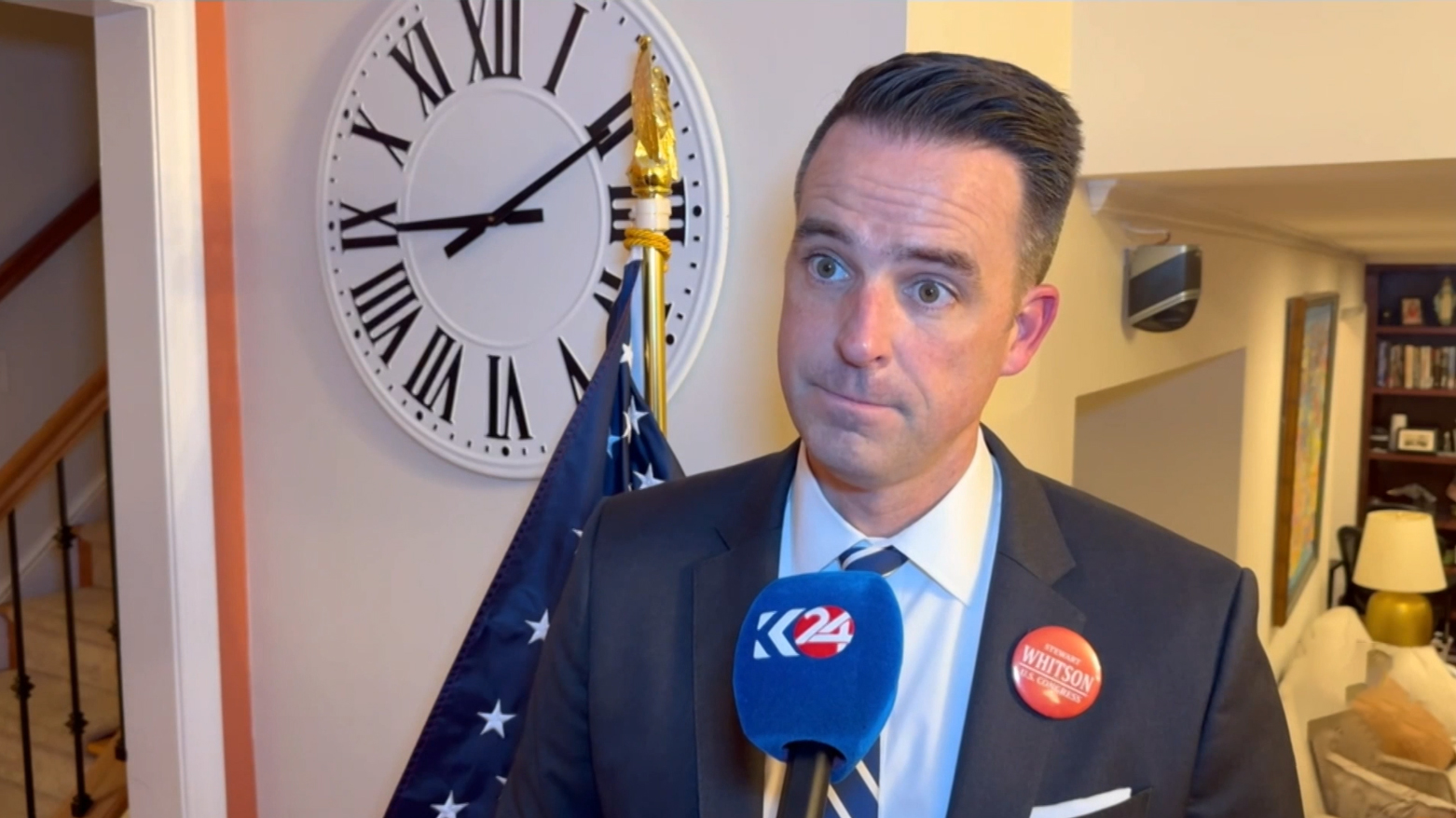U.S. Congressional Candidate Stewart Whitson Praises Kurdish Partnership, Urges Maximum Pressure on Iran
US Congressional candidate Stewart Whitson praises Kurdish-US partnership, urges "maximum pressure" on Iran in an interview with Kurdistan24. The Army veteran called the Kurds key security and energy allies, aligning with recent multi-billion-dollar KRG-US energy deals.

ERBIL (Kurdistan24) – Stewart Whitson, a Republican candidate for Congress in Virginia’s 11th District, underscored the importance of Kurdish-U.S. relations and urged a stronger stance against Iran in an interview with the head of Kurdistan24's office in Washington, D.C., Rahim Rashidi (Mr. Kurd).
Introducing himself, Whitson said: “I’m an Army combat veteran, a former federal law enforcement officer, a husband of 20 years, and a father of five. I’m running to fight for the people in our district, protect our families, and restore common sense.”
He recalled his 22 months of deployment in support of Operation Iraqi Freedom, including 16 months in Iraq, where he conducted combat patrols. “I had a Kurdish linguist with me on all those patrols. I know firsthand how wonderful the Kurdish people are, how aligned they are with U.S. foreign policy, our interests, and our values,” Whitson noted.
Turning to regional threats, Whitson stressed that Iran poses the greatest danger to both the United States and the Kurdish people. “What the Republic of Iran is doing is unacceptable. Iran is the world’s largest state sponsor of terrorism, and much of that terrorism is directed not only against the U.S. but also against the Kurds and others,” he said.
He argued that the October 7 attack on Israel “would have never happened if not for Iran” and insisted that “most of the problems in the Middle East can be traced back to one actor, and that is Iran.”
Whitson praised President Donald Trump’s approach: “The U.S. must do exactly what President Trump is doing—apply maximum pressure on Iran, prevent it from developing nuclear weapons, and stop the drone attacks targeting the Kurdish people.”
Whitson highlighted that the Kurds remain among Washington’s most reliable allies. “The best thing the U.S. can do for the Kurdish people is to support them—providing weapons, ammunition, and defensive munitions so they can secure their territory,” he said.
Drawing on his experiences as both an Army officer and an FBI special agent, Whitson emphasized that “the Kurds were the one group capable of securing an area and bringing peace and stability.” He stressed that helping them continue to do so aligns directly with U.S. interests.
Whitson also underlined the economic and strategic value of Kurdish resources. “The Kurds are key partners not only for security but also for oil and gas. When oil or gas is purchased from the Kurds, that money does not go to Iran—and if it doesn’t go to Iran, it cannot be used to fund terrorist attacks against the U.S. or its allies,” he said.
He argued that maintaining Kurdish stability ensures alternative energy supplies outside the influence of Iran and Russia. “It is in the U.S. interest to maintain security in the Kurdistan Region because it provides access to oil and gas for the U.S. and the world,” he concluded.
Whitson’s remarks come at a time when relations between Washington and Erbil are entering what Kurdistan Region Prime Minister Masrour Barzani has called “a new era.” On May. 20, 2025, PM Barzani announced the signing of two multi-billion-dollar energy agreements with U.S. companies HKN Energy and WesternZagros Resources during a high-profile ceremony at the U.S. Chamber of Commerce in Washington, D.C.
“These deals will power millions, create jobs, and strengthen the foundation of Kurdistan’s economy,” Barzani declared, describing the agreements as “a milestone in U.S.-Kurdistan relations.”
The first agreement focuses on the development of the Miran gas field, with an estimated 8 trillion cubic feet of gas, while the second targets the Topkhana field, containing 5 trillion cubic feet of gas and 9 million barrels of oil. Together, they are valued at an estimated $110 billion and are expected to help close the Kurdistan Region’s energy gap, reduce reliance on imports, and pave the way for future exports.
Barzani stressed that the accords reflect the Kurdistan Regional Government’s commitment to peace through economic progress. “This marks the beginning of a new era for our region. Economic development and energy investment are powerful tools that can deepen our relationship and strengthen our bonds,” he said.
By linking security cooperation with deepening economic ties, the United States and Kurdistan Region are reinforcing a long-standing partnership. For Whitson, supporting the Kurds remains a matter of strategic necessity. “It is in the U.S. interest to maintain security in the Kurdistan Region because it provides access to oil and gas for America and for the world,” he said.
As both Whitson’s congressional campaign and PM Barzani’s energy vision highlight, Washington and Erbil appear poised to expand a partnership that is rooted in security but now extends into vital economic and strategic dimensions.
U.S. Congressional Candidate Stewart Whitson Praises Kurdish Partnership, Urges Maximum Pressure on Iran
— Kurdistan 24 English (@K24English) August 21, 2025
US Congressional candidate Stewart Whitson praises Kurdish-US partnership, urges "maximum pressure" on Iran in an interview with K24. The Army veteran called the Kurds key… pic.twitter.com/rlgjHpgrto
